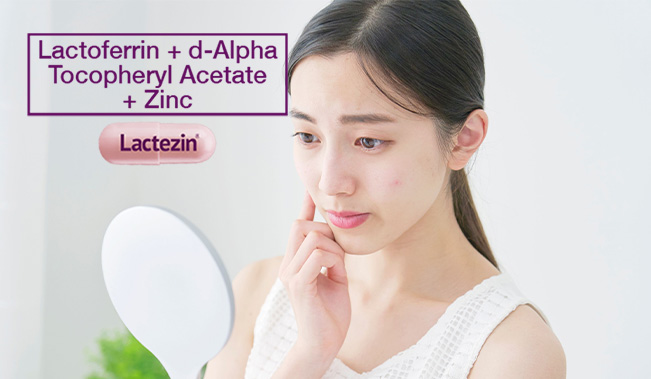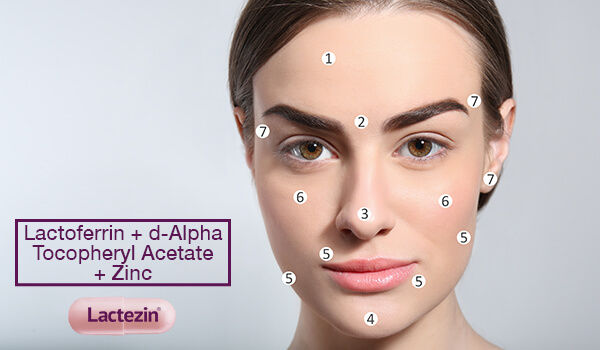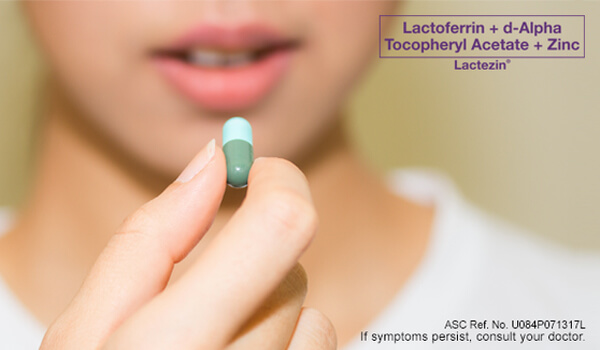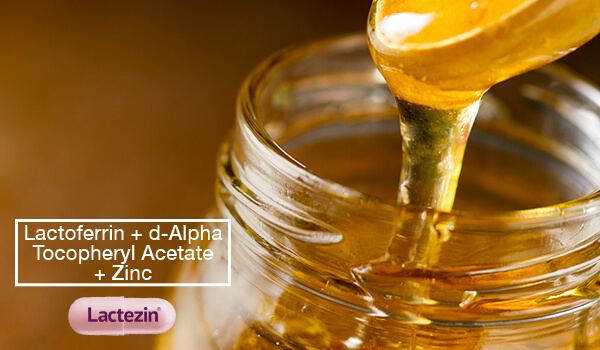Understanding Skin Inflammation & Inflamed Acne

Seeing a red and inflamed pimple on an otherwise bare face can definitely be a frustrating situation. After all, the presence of one can signal that something is wrong with your skin.
By now, you’re probably aware of why and how pimples develop. These usually appear because dead skin cells, sebum or oil, and dirt clog and infect the oil glands on your face. If left unaddressed, these particular areas can swell up and become a painful zit you just want to get rid of immediately.
While there are many known causes of pimples, inflammation on the skin, especially within, may be to blame. As a result, you may need to deal with inflammatory acne. Take a closer look at what causes inflammation on skin and how it can lead to the appearance of pimples.
Does Skin Inflammation Play a Role in Pimples?
Yes! Do remember that there are actually two types of acne: non-inflammatory acne and inflammatory acne. If you have non-inflammatory acne, this means that sebum and dead skin cells have clogged a particular pore on your skin. The result is a bump on the skin that can manifest either as blackheads or whiteheads.
However, if you have inflammatory acne, a bacteria strain called Propionibacterium acnes comes into play. Together with sebum and dead skin cells, they build up within your pores, deprive it of oxygen, and eventually “break down” the pore’s wall and sink deeper into your skin’s surface.
This particular action then elicits a reaction from your immune system. It sends white blood cells to the affected area to fight these “unwanted guests” in your skin. This causes the area to be inflamed and leads to the appearance of pimples.
What Are the Signs of Skin Inflammation?
When dead skin cells, oil, and bacteria make their way into the inner depths of the skin, it can result in skin inflammation symptoms. The most common is inflammatory acne that exhibits swelling, irritation, pain, or itchiness. However, inflammatory acne may also trigger the formation of pimples with these characteristics:
- Are filled with white or yellow pus and surrounded by redness
- Feel hard and painful underneath the skin, and don’t reach the skin’s surface
There’s also a possibility that inflammatory acne can cause “pitted scars” to appear on your skin because of previous cases of inflamed pimples.
Inflammatory acne can be classified into four types, namely papules, pustules, nodules, and cysts. The last two categories are considered to be “more severe,” so you may want to consult your dermatologist in case these appear.
Things to Remember for Inflammatory Acne Prevention
You may feel disheartened when you experience a breakout linked to inflammatory acne, but don’t fret. There are many ways to address these kinds of pimples. Do remember that skin inflammation treatment for acne may vary from one person to another. This is because not everyone has the same skin type, and reaction to treatments can be different.
Aside from these potential solutions, you can also prevent inflammatory acne (and acne in general) by following these tips:
- Regularly wash your skin. This process, especially when done after working out, may help eliminate oil and dead skin cells on the skin that may clog pores.
- Refrain from touching and popping your pimples. It doesn’t matter if you have clean hands or not, this particular act can push the dead skin cells, sebum, and/or bacteria into your skin. This may trigger more inflammation, pain, or even scarring.
- Apply the right make-up or skincare products. Make sure the products you’re using are noncomedogenic or don’t clog pores. If you’re wearing make-up, don’t forget to remove them before calling it a night.
- Use clean brushes, applicators, or sponges. Dirt that remains in these products can be transferred onto your faces and cause skin problems like pimples.
- Watch what you eat. It’s said that acne may be more common in people who eat food that contains lots of sugars, refined grains, and fats. Reducing these particular options may help improve your skin health and lower your risk for pimples.
Try to add anti-inflammatory options like tomatoes, leafy green vegetables like spinach and kale; fresh fruits like oranges and strawberries; fatty fish like salmon, mackerel, tuna, and sardines; and nuts such as almonds and walnuts into your diet.
- Look into supplements with notable anti-inflammatory ingredients: Feel free to look into various supplements that contain anti-inflammatories for your skin.
One ingredient to look out for is lactoferrin, an iron-binding protein that also contains antibacterial properties. Even better, lactoferrin’s potential anti-inflammatory effect can also be heightened when lactoferrin is combined with vitamin E and zinc.
Why Choose Lactoferrin + d-Alpha Tocopheryl Acetate + Zinc (Lactezin)?
Let inflammatory acne be a thing of the past with the help of a supplement like Lactoferrin + d-Alpha Tocopheryl Acetate + Zinc (Lactezin). Together with proper diet and exercise, Lactoferrin + d-Alpha Tocopheryl Acetate + Zinc (Lactezin) may help address and prevent pimples when taken two times daily for at least two weeks.
It’s able to do so because of a trio of nutrients that may be beneficial for skin health, namely:
- Lactoferrin: This may help reduce oil, inflammation, and bacteria within the skin, and aid in skin cell repair.
- Vitamin E: This vitamin may help target free radical damage, improve skin cell health, boost skin moisture, lower risk for skin dryness, and fight UV rays.
- Zinc: This particular mineral won’t just help improve your immune system, it may also assist with wound healing and damaged tissue repair, on top of antioxidant and oil-regulating abilities.
Don’t let skin inflammation stand in your way - let Lactoferrin + d-Alpha Tocopheryl Acetate + Zinc (Lactezin) help you improve your skin from within.
Lactoferrin + d-Alpha Tocopheryl Acetate + Zinc (Lactezin) is available in drugstores nationwide, and online on the ULSSI webstore, Shopee and Lazada.
If symptoms persist, consult your doctor.
ASC REFERENCE NO. U202P083122LS
SOURCES:
References:
https://www.medicalnewstoday.com/articles/71702
https://www.medicalnewstoday.com/articles/inflamed-acne
https://www.healthline.com/health/beauty-skin-care/types-of-acne
https://www.healthline.com/nutrition/foods-that-cause-acne
https://my.clevelandclinic.org/health/diseases/22765-inflammatory-acne
https://www.health.harvard.edu/staying-healthy/foods-that-fight-inflammation


